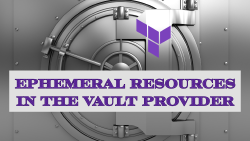


The overall theme of 2024 was acceptance. If you go through my 2023 year in review, I was generally pretty negative about the year. Not to say that nothing good happened in 2023, but it was a major down year in terms of revenue and I failed at a number of things. That’s okay though! One of my central pillars is to embrace failure, and I did that. Even though 2024 saw another dip in the Ned in the Cloud revenue, I have made my peace with that and moved into the phase of acceptance and planning. There’s going to be a whole separate post about planning for 2025, so let’s focus on what happened in 2024.
As a company, Ned in the Cloud saw a revenue drop of 4%. That is not nearly as drastic as the 30% drop seen in 2023! The major cause of the drop was Pluralsight, a topic which I have more to say about in the Pluralsight section. I also wrote a whole post about what is going on with Pluralsight as a whole, which happens to be one of my most popular posts this year.
Despite my revenue from Pluralsight dropping by 17%, I had a host of new clients come in to lessen the impact. Terramate, Firefly, IntegraONE, and Cast.AI all helped me make up for lost revenue. Additionally, I did more live training for HashiCorp Academy. My projection for 2025 actually has another revenue drop of about 8%, but we can talk about that more in the planning section.
The central principle behind Ned in the Cloud is technical education. I know I say this every year, but the whole point and mission behind Ned in the Cloud is to provide educational material to folks in the information technology field. Almost every project I undertake has some educational component to it, whether that’s writing documentation, creating videos, or writing courses. What can I say? I love learning and sharing with others!
In 2024, I published 116 new videos to the channel. Which is a lot more than 50 last year! Here’s the thing though, YouTube added the ability to publish your podcast directly to your YouTube channel through a feed. I added Chaos Lever, which mean that all Chaos Lever episodes (two a week!) were now being added to my YouTube channel automatically.
In fact, the import process adds all the older episodes too, which means I added 235 videos to the channel. But I am only going to count new episodes, which is how we get to the 116 number.
I’ll deal with the Chaos Lever of it all in a later section, so let’s talk about the other YouTube videos. First, some stats on my best performing videos released this year:
| Title | Date | Views |
|---|---|---|
| Using Azure Storage for Terraform State - Best Practices | 2024-01-04 | 3,973 |
| Getting Started with Terraform Stacks | 2024-10-29 | 3,518 |
| Migrating From Terraform To OpenTofu | 2024-06-18 | 3,199 |
| Using the Terraform Test Framework | 2024-05-29 | 2,980 |
| Introducing Azure Verified Modules for Terraform | 2024-02-14 | 2,393 |
What can I glean from these top performers? Well, Terraform continues to perform well for me. Anything Azure related also seems to get a nice bump, but in fairness, I don’t often do videos that are AWS or GCP specific. I don’t really have anything to compare my Azure videos to, except for a lack of Azure.
The other thing I should note about these videos is the fact that videos released earlier in the year have had more time to accumulate views. A better metric for comparison would probably be views in the first 30 days, if I’m trying to compare apples to apples. As far as I can tell, there’s no easy way to do that with the YouTube analytics engine. If you know a way to do it, please let me know!
My top videos watched videos in 2024 are all from previous years, which is a little depressing I guess:
| Title | Date | Views |
|---|---|---|
| Terraform Basics: Modules | 2021-06-01 | 13,581 |
| Exploring the Import Block in Terraform 1.5 | 2023-07-12 | 7,059 |
| Managing Multiple Environments with Terraform | 2023-10-17 | 5,562 |
| What is PXE Boot? | 2020-11-19 | 5,481 |
| Azure DevOps Pipeline with Terraform | 2021-05-18 | 5,125 |
I had no idea my Terraform Basics: Modules video was going to blow up like that. I mean, it’s a good video and I’m proud of it, but it’s not like it’s earth shattering. Sometimes 101 content is just what people the need. It gets them going!
Case in point, my What is PXE Boot? video. I made that video four years ago and it still performs like a champ. At the time, I was just trying to get my Raspberry Pi to PXE boot properly and I ended up doing a deep dive on the tech. The resulting video has almost 22k views, making it my 5th most popular video of all time. What’s funny is that I’m not a PXE boot expert by any stretch of the imagination. I just wanted to figure out how to configure my DHCP server to support PXE boot and configure a TFTP server to support booting from LAN. Turns out I wasn’t the only one!
The other trend I am noticing is that my Terraform Basics series in general does really well. Which is why I have more in the series planned for 2025. In fact, here are a few key takeaways I’m going to use to inform my videos in 2024:
That translates into more coverage for the Terraform Basics series, covering new products in the IaC space, and maybe getting back into the homelabbing stuff of yesteryear. I still have a Turing Pi 2 board collecting dust and Supermicro servers that needs a purpose. I know I said I was going to dig into Proxmox in 2024 and I didn’t. Maybe I should in 2025!
There were some big changes over on the Day Two Cloud podcast. A new name and a new cohost! What didn’t change was the amazing content and guests we had on the show. Let’s first talk about the host change.
Day Two Cloud started out with just me at the beginning of 2019, and I hosted the first 21 episodes solo. After that, Ethan Banks joined me for episode 22 and we changed the schedule of the show from bi-weekly to weekly.
Having a cohost is awesome! In part because you’re no longer responsible for sourcing every guest. While Ethan and I didn’t keep close track of who found which guest, I would say we split things about 50/50. Ethan also assisted with formulating questions, keeping editor notes, and asking questions that I wouldn’t think of. Given his deep background in networking and mine in cloud, we could play the audience surrogate for different roles.
Ethan is also the co-founder of Packet Pushers along with Greg Ferro. That makes him responsible for keeping the company running. He also cohosts least two other podcasts on the network.
When Greg opted to retire in 2024, Ethan suddenly had a lot more on his plate. I could tell it was weighing on him. He dropped a couple subtle hints about it being okay if I wanted to have a different cohost on some of the episodes, and I took the cue. It was time to lighten Ethan’s load.
Thus the search for a new cohost commenced. But where to start? How do you find a cohost that you think you’ll gel with and that the audience will enjoy listening to? My mind immediately went to previous guests on the podcast that I really enjoyed talking to. I also wanted to bring some diversity to the podcast, rather than it being yet-another-two-middle-age-white-guys-talking-tech dot com. Based on that criteria, I drew up a short list. At the top of that list was Kyler Middleton.
I found Kyler through the HashiCorp Ambassador program. We were both Ambassadors in 2021, and at the time I was looking for potential new guests for Day Two Cloud and for my YouTube channel. What better place to look than the list of HashiCorp Ambassadors?! It’s a self-selected group of community-minded individuals who excel at communicating and sharing the interesting tech they’re working on. I did the same thing with Microsoft MVPs when I was getting Day Two Cloud off the ground in early 2019.
Kyler was a guest on episode 128 of Day Two Cloud, and if you go back and listen, I think you can tell that Kyler, Ethan, and I are having a blast. Not only was it a great conversation, but we also gelled as people. I immediately put Kyler in my list of cool people I want to collaborate more with. Yes this is a mental list I keep, no you cannot see it.
Since she was at the top of my potential cohost list, I reached out to her first and immediately she said yes. Just like that, my “long” search for a new cohost was over. Kyler made her debut in episode 236 on March 6, 2024 and the rest is history.
Now about that name change thing…
When I started Day Two Cloud in 2019, the idea was simple. Find practitioners who had done interesting stuff in the cloud and find out what challenges they faced beyond Day One. Over time I started to think that Cloud was too limiting of a term. We weren’t just talking about cloud technologies, but well beyond into the practices, processes, and people that make modern infrastructure work. People? Processes? Practices? Hmmmm… that sounds suspiciously like DevOps!
I figured since we were shaking things up with cohosts, it might be the ideal opportunity to change the podcast’s name to reflect the topics we actually cover. We worked through a few different ideas and ultimately landed on Day Two DevOps. It took a few months to prepare the branding updates and figure out the naming change with the website, but finally in July of 2024 the name change became official. Day Two Cloud was now Day Two DevOps, where the DevOops is in the details.
In terms of episodes we published this year, here is a selection of my favorites:
Keeping myself to seven episodes was a real challenge!! What about the audience? What episodes were most popular with them? Here’s the top five:
| Title | Date | Downloads |
|---|---|---|
| D2C242: Data Engineering and its Streams, Rivers, and Lakes | 2024-05-08 | 8,043 |
| D2C240: The Duality of Enterprise AI | 2024-04-17 | 7,442 |
| D2C245: Don’t Fear Database DevOps | 2024-06-19 | 7,090 |
| D2C235: Building Modern Apps In GovCloud | 2024-02-28 | 6,142 |
| D2C234: What to Do About VMware | 2024-02-21 | 5,130 |
You might notice that these are all from the first half of the year, and that’s probably because they’ve had the most time to rack up downloads. Most episodes have a big initial spike of downloads when published and then a long tail of downloads over time. The more recent episodes simply haven’t had time to rack up that long tail.
Still, based on the topics that resonate most with folks, it certainly seems that AI, data wrangling, and non-public cloud are of interest. If I expand the view out beyond the top five, that pattern doesn’t really hold. So I guess formulating a content strategy may be an exercise in futility. Instead, Kyler and I will keep finding interesting people and inviting them to be on the show. We’ve already got some great stuff recorded for 2025 with more to come!
The year for Chaos Lever is a bit hard to describe. I guess you could say it’s the year we grew up a little? As I mentioned in my 2023 post, I hired HumblePod to help with production on Chaos Lever. They took over the editing, publishing, and promotion of the podcast. In the process, they got me to move hosting from my home-grown Azure Storage solution to Transistor and the website off an Azure Static Web App and onto Podpage.
The result is that Chaos Lever looks way more professional and I can actually collect reliable statistics! HumblePod also put together YouTube shorts using our recordings to help promote the episodes and showed me how to integrate the podcast feed with my YouTube channel. I really can’t say enough nice things about HumblePod and all they did for the show.
Unfortunately, that amazing service also comes with a hefty price tag, and as of right now Chaos Lever effectively makes no money. My hope was that the more refined Chaos Lever would attract sponsors and we would start getting some sweet, sweet ad revenue floating in to pay for all the excellent work HumblePod was doing. After eight months, I made the difficult decision to drop HumblePod and go back to doing things myself. It’s not too bad, and my hope is that Chris and I eventually manage to build up enough of a following that we’ll be able to afford HumblePod sometime in the future. Until then, I’ll just have to deal with editing the episodes myself.
Speaking of episodes, I think we really embraced the historical slant of Chaos Lever this year and in the process created some amazing episodes. The most popular episodes according to the audience were:
| Title | Date | Downloads |
|---|---|---|
| HashiCorp Under IBM’s Wing | 2024-05-02 | 770 |
| The Reality of ‘Secure by Design’ and the Future of Cybersecurity | 2024-03-07 | 456 |
| DNS: The Backbone Of Browsing (Part 1) | 2024-05-16 | 358 |
| Break the Glass and Walk Away: A (VERY) Brief Overview of BGP | 2024-06-20 | 301 |
| Going Deeper into BGP with Doug Madory | 2024-07-18 | 278 |
What’s interesting is that most of the downloads and view are coming from YouTube and not the podcast feed itself. Funny that. I guess adding Chaos Lever to YouTube was a good move. The download numbers are still nothing to write home about, and I’m not sure what else I could be doing to promote the podcast.
I don’t know if Chaos Lever will ever be the smash hit I think it should be, or if Chris and I will continue to toil in obscurity for the next X number of years. I suppose as long as we both enjoy the work and the process of discovery that comes with it, then it continues to be worth doing on its own merits.
After Pluralsight, my biggest revenue driver this year was teaching HashiCorp Academy courses through River Point Technology. If my notes are to be believed, I taught eleven classes in total: six Terraform Foundations classes, three Terraform Advanced classes, one Terraform Fundamentals private training, and one Vault Enterprise class. My goal for 2024 was to stick to about one class a month and that’s what I did. There was actually one more class I was signed up to teach that got cancelled, so I would have been at twelve exactly.
Pluralsight continues to be the bulk of my revenue here at Ned in the Cloud. However, the company as a whole has been experiencing some significant financial woes, as I documented here along with my feelings on the matter. I’m not going to rehash all that in this post- really you should just go read what I wrote- the tl;dr is that Pluralsight is still an excellent platform for learners that is slowly being ruined by private equity. My hope is that the current executive team can realign on doing things right and not just for short-term gain.
In terms of courses for Pluralsight, I published two course updates and one actual course. The Azure Virtual Desktop certification course needed to be updated to reflect the new objectives in the certification. I also updated my Implementing Terraform on Microsoft Azure course with a new Advanced Terraform with Azure course. But there’s some weirdness going on with the two courses that I need to explain.
I published the Advanced Terraform with Azure course in June on A Cloud Guru. The older Implementing course continues to live on the Pluralsight platform and is still available. Since publishing six months ago, the older Implementing course has 2,286 viewed hours and my newer Advanced course has 155 hours. What this tells me is that of the two platforms, Pluralsight is wildly more popular for me.
Why was my updated course published on A Cloud Guru (ACG) and not on Pluralsight? Here’s a little background. Pluralsight acquired A Cloud Guru back in 2021. At the time, they were two separate platforms with different catalogs and experiences. Since that time, Pluralsight has been trying to meld the two together into a single cohesive platform. But that is still not really the case!
The two platforms are still fairly different and you still have to purchase plans separately. Which means if someone signed up on Pluralsight to take my Terraform Getting Started and Deep Dive courses and then wanted to take an Azure-focused Terraform course, they would only have access to my older Implementing course! That’s why the older course is so popular, because its the only option for Pluralsight subscribers.
However, Pluralsight made the decision that all cloud-related content would now be published on the ACG platform. Since my Azure-focused Terraform course was indeed focused on a cloud platform, Azure- it needed to be published on the ACG side, where no one who has a Pluralsight-only course can access it. The result is that learners are forced to take an older course because they don’t have access to the newer one. Why they couldn’t just publish the new course across both platforms is beyond me.
Anyway, I’ll have more to say in my planning for 2025 post, so I think I’ll just stop here.
I did not write any new books or update any existing books in 2024. I did start writing a Terraform Professional certification guide, by my buddy Mattias beat me to it and I’m just recommending that people go buy that instead.
Naturally I appeared on a few other things this year:
There might be some more, but looking through my notes and calendar, I don’t see anything.
This is a fun section with a fun name. What did I fail at in 2024? And I don’t mean that in a super-negative way. One of my three pillar is embracing failure, so it’s time to give my failures a big ole hug!
Boy howdy did I think I was going to do a whole series of videos about Proxmox. This was spurred by the VMware acquisition by Broadcom and a general sense that people might be looking for another virtualization platform. I actually did end up building a Proxmox server in the homelab and tinkering around with it. But then I got busy with other things and Tim Warner published a Proxmox course on Pluralsight, so I just kinda let it go to the side. Will I pick it back up in 2025? Unlikely.
I also thought I might spend some more time with WebAssembly and get to know it from an operations standpoint. I also didn’t do that. I didn’t even spin up a basic proof of concept. I just shunted wasm off to the side and continued on with my life.
Crossplane is an interesting alternative to CloudFormation or Terraform. I tried getting started with it on Azure using kind for Kubernetes clusters, and I pretty much stopped there. The learning curve and admin curve of Crossplane is pretty steep and I just don’t see the benefit. Maybe I’m ready to tackle this one in 2025.
I had planned to do some updates to my HashiCorp Vault courses, the Implementing Terraform on AWS course, and maybe do an OPA and Terraform course. I did none of those. Mostly because of the strained relationship with Pluralsight and the fact that most of the people I worked with there left. Still Pluralsight is kind to me when it comes to revenue, so maybe it’s time to put some effort back into the platform. The new version of the Vault certification dropped and that alone should require a review of the existing material.
What’s coming for 2025? A lot more videos, blog posts, and podcasts. Of that you can be sure. For specifics, I guess you’ll just have to eagerly await my 2025 planning post/video!
Vault Provider and Ephemeral Values
July 21, 2025

Write-only Arguments in Terraform
July 15, 2025

July 1, 2025

On HashiCorp, IBM, and Acceptance
March 3, 2025
